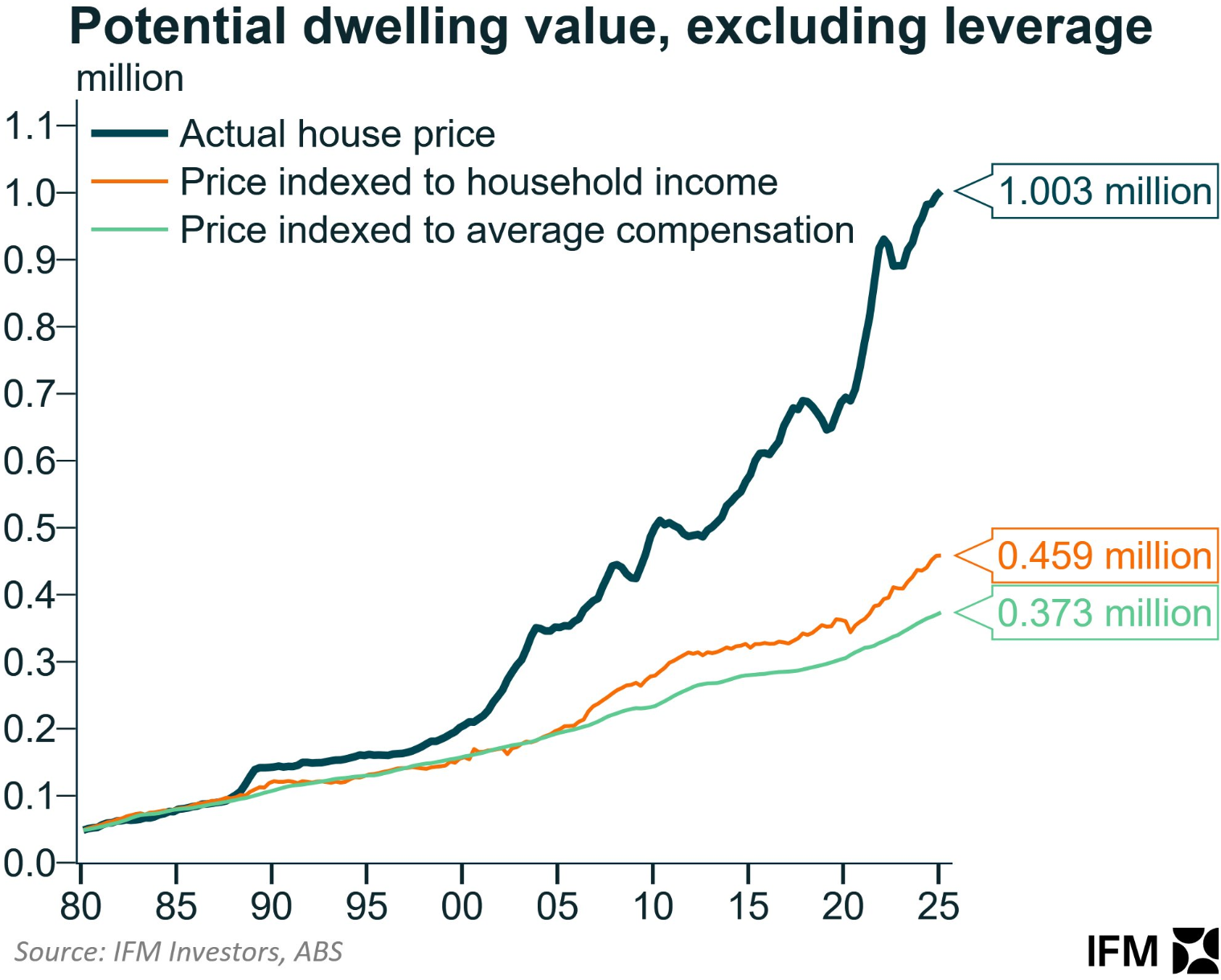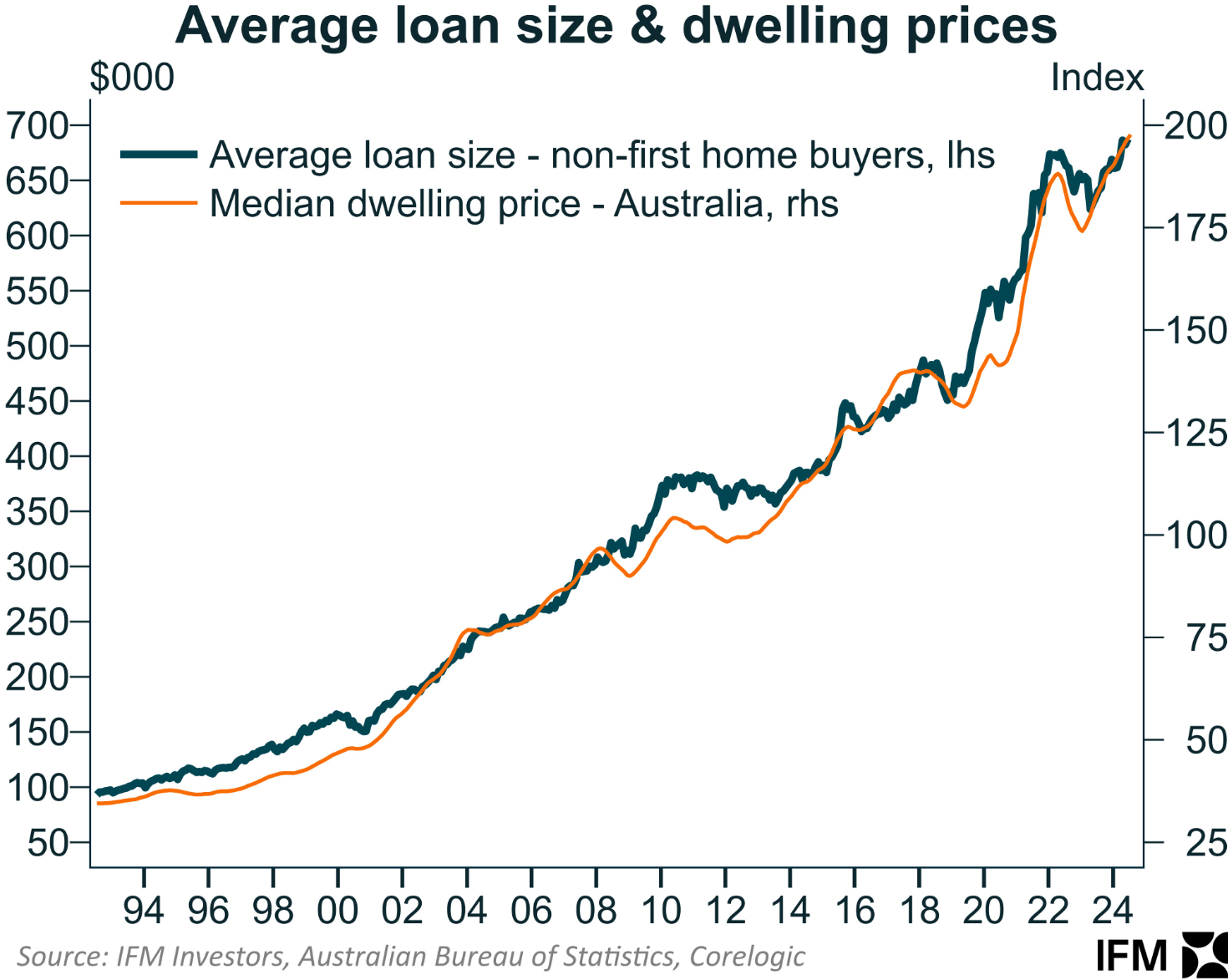The 2025 federal election campaign saw both sides of politics cynically propose policies to pump homebuyer demand and prices.
Both sides also explicitly stated that they want to see Australian house prices rise at a ‘sustainable rate’ from already record-high levels.

Neither side genuinely wants to “solve” the housing affordability crisis because that would require prices and rents to fall.
So, they continue to pretend to care about affordability while they introduce ever more elaborate schemes to drive prices higher.
It is a story that has played out throughout this century, with demand-side policies like first home buyer grants, shared equity schemes, and the like pushing mortgage sizes and home prices forever higher.

Labor obviously won the recent federal election, and from 1 October 2025, we will see virtually all first home buyers in Australia able to purchase a home with only a 5% deposit without requiring lenders’ mortgage insurance, with taxpayers guaranteeing 15% of their purchase.
As a result, buyer demand will increase and average mortgage sizes and home prices will inflate further. The policy, like the rest, is self-defeating from an affordability perspective, which necessarily requires home prices to fall.
One of the reasons why politicians continually implement self-defeating demand-side measures is pure electoral math: the number of homeowners (roughly two-thirds of the population) outnumbers the number of renters (roughly one-third).
The other reason is because Australia’s federal politicians are hocked to their eyeballs with property:
More than half the politicians in federal parliament have disclosed owning investment properties or multiple homes, with at least 50 receiving rental income as landlords.
Guardian Australia analysis of the parliamentary register of interests finds 131 out of 226 federal MPs and senators have disclosed multiple properties, investment properties, or both.
At least 92 have disclosed properties they have listed as investment, rental or “landlord”…
Some 125 politicians – 56% of the parliament – have declared owning multiple properties…
Tony Burke, the home affairs minister, also has six properties listed: two residential homes in Sydney and Canberra, as well as four investments, with three in Tasmania and another in Victoria’s Port Phillip.
Rising star Labor assistant minister Andrew Charlton has listed a portfolio of five “residential investment” properties, including homes in well-heeled Sydney suburbs including Bellevue Hill, Woollahra and the northern beaches.
Anthony Albanese, who lives at the prime minister’s residence The Lodge in Canberra, has listed two investment properties.
First-time buyers in Australia are being excluded from the market because prices are too high relative to earnings. They are also paying a record share of their incomes on rent while they save for a deposit.
The first solution should be to restrict immigration, which is incredibly destructive to first-time home buyers for two reasons.
- Excessive immigration increases the costs of renting, making it more challenging for prospective first-home buyers to save a deposit.
- Excessive immigration puts upward pressure on home prices, pushing ownership further out of reach.
However, with Home Affairs and Immigration Minister Tony Burke owning six residential properties, reducing immigration works against his (and other politicians’) financial interests.
The federal government should also limit investment property concessions, preferably as part of a fundamental reform of the tax system that shifts the burden away from workers through income taxes and towards other forms of taxation, such as resource, consumption, and wealth taxes.
However, restricting property tax concessions is also against politicians’ financial interests.

